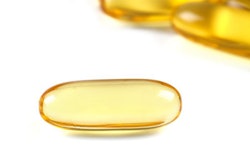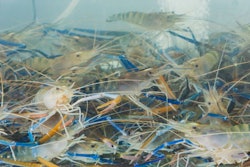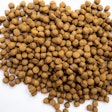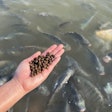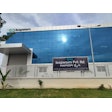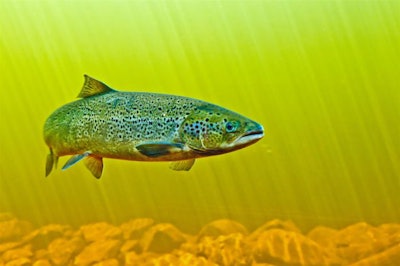
KnipBio Inc. has received Generally Regarded As Safe (GRAS) designation from the U.S. Food and Drug Administration (FDA) Center for Veterinary Medicine for its KnipBio Meal (KBM) aquafeed ingredient for salmonids and other finfish species.
KBM is made of dried Methylobacterium extorquens biomass and is meant for use as a protein source in food for aquaculture species when used at an intended use rate of up to 10 percent of the diet.
Dried Methylobacterium extorquens biomass is produced from genetically engineered Methylobacterium extorquens strain KB203 through fermentation using starting raw materials suitable for use in animal food and process controls. The organism is grown in a mineral salts solution and methanol is added as the carbon source for growth. After the fermentation, the biomass is centrifuged, and the resulting slurry is then spray dried.
The GRAS designation was achieved after an extensive review of feed trial results by an independent panel of subject matter experts who determined KBM to be safe as a feed ingredient for finfish. KnipBio Meal is the first premium single cell protein to achieve a GRAS designation for aquafeed from the U.S. government.
“GRAS notification status is different from self-determination because it is the result of a complex review process that takes years to complete,” said Larry Feinberg, CEO of KnipBio. “Many countries look to FDA GRAS designation as a strong indication that a feed product has been rigorously tested and reviewed. This designation is therefore an important milestone for our company and moves us significantly ahead of other companies in our industry. We are proud to be the first American company to invest in the scientific evidence necessary to receive this designation for aquafeed and are confident this approval opens many opportunities for us in the global finfish aquafeed market estimated to be worth greater than $10 billion annually.
“The aquaculture industry will be an increasingly important provider of healthy and sustainable animal protein in the coming decades. For this to happen, the industry needs scalable and affordable alternatives to complement the finite supply of fishmeal currently used to provide protein in feed formulas.
“Having achieved GRAS designation for our first product in finfish, we now anticipate additional approvals for the use of KBM in crustaceans as well as for other versions of our single-cell protein, including one that creates a natural form of astaxanthin and can potentially serve as a color additive in salmonid feed applications.”


